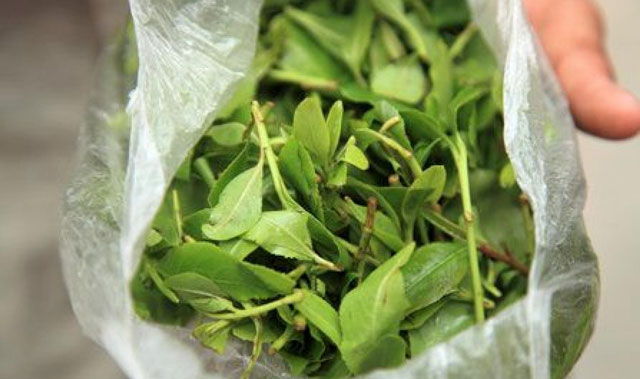
Kampala, Uganda | THE INDEPENDENT | The government is seeking to remove khat (miraa) from the list of prohibited narcotic drugs in the statute books of Uganda.
Khat is a flowering plant native to eastern and southern Africa. A dried preparation of the flowering tops or other parts of the cannabis plant, smoked or consumed, generally illegally, as a psychoactive or psychostimulant drug among consumers.
While meeting Parliament’s Committee on Defence and Internal Affairs that is reviewing the Narcotic Drugs and Psychotropic Substances (Control) Bill, 2023 on Thursday, Maj Gen (Rtd) Kahinda Otafiire, the Minister of Internal Affairs said Khat should be considered as a cash crop and medicinal substance.
In comparison with coffee and alcohol, Otafiire argued that khat is not as dangerous, and therefore, Parliament should consider decriminalizing it to enable Uganda like neighboring Kenya, Ethiopia, Djibouti, and Somalia among others.
Kepher Kuchana Kateu, the Director of the Government Analytical Laboratory – GAL said that Khat belongs to “cannabis” and refers to all products derived from the plant Cannabis sativa which has about 540 chemical substances.
Kuchana told the Committee chaired by Wilson Kajwengye, the Nyabushozi County Member of Parliament in Kiruhura District that khat is widely grown on the African continent for medical values, adding that though harmful when abused, the plant provides raw material for textiles industries.
Bukooli County Representative in Namayingo District, Adidwa Abudu, wondered why the Government is isolating khat after the 9th Parliament enacted the Narcotic Drugs and Psychotropic Substances Act, 2015 to address rampant incidents of mental health disorders in the country linked to its consumption.
The government reintroduced the Bill on May 23rd, 2023, two weeks after the Constitutional Court nullified the Narcotic Drugs and Psychotropic Substances Act on grounds that at the time of its passing Parliament lacked the required quorum.
The decision of the Constitutional Court was a result of a successful challenge of the Act by the Wakiso Miraa Growers and Dealers Association – WMGDA in a 2017 petition which sought to overturn a Parliamentary decision on the sale and use of khat .
In the new Bill, if an offender is convicted of possessing narcotic drugs or psychotropic substances, he or she could face a fine of 500 currency points, about 10 million Shillings, or incarceration of not less than two years but not exceeding 10 years.
Equally, smoking, inhaling, sniffing, chewing, or any form of use of a narcotic drug or psychotropic substance attracts a penalty of not less than 480,000 Shillings and not exceeding 2.4 million or a custodial sentence of not less than 12 months but not exceeding five years.
While the same penalty has been reserved for a person who owns or occupies or manages premises or permits premises to be used for abuse or manufacturing; possession of the Khat attracts a three million Shillings fine or imprisonment not less than three years.
But the penalties will not apply to a medical worker who includes, a dentist, a veterinary surgeon, or a registered pharmacist who is found in possession of narcotic drugs or psychotropic substances if he or she has a license issued by the National Drug Authority – NDA.
If found guilty of trafficking narcotic drugs and psychotropic substances, an offender upon conviction faces a fine of 10 million Shillings or life imprisonment.
The Government has emphasized the need to deregister from professional bodies any medical practitioner convicted of improper prescription of these drugs to avoid abuse on medical grounds.
****
URN
 The Independent Uganda: You get the Truth we Pay the Price
The Independent Uganda: You get the Truth we Pay the Price





